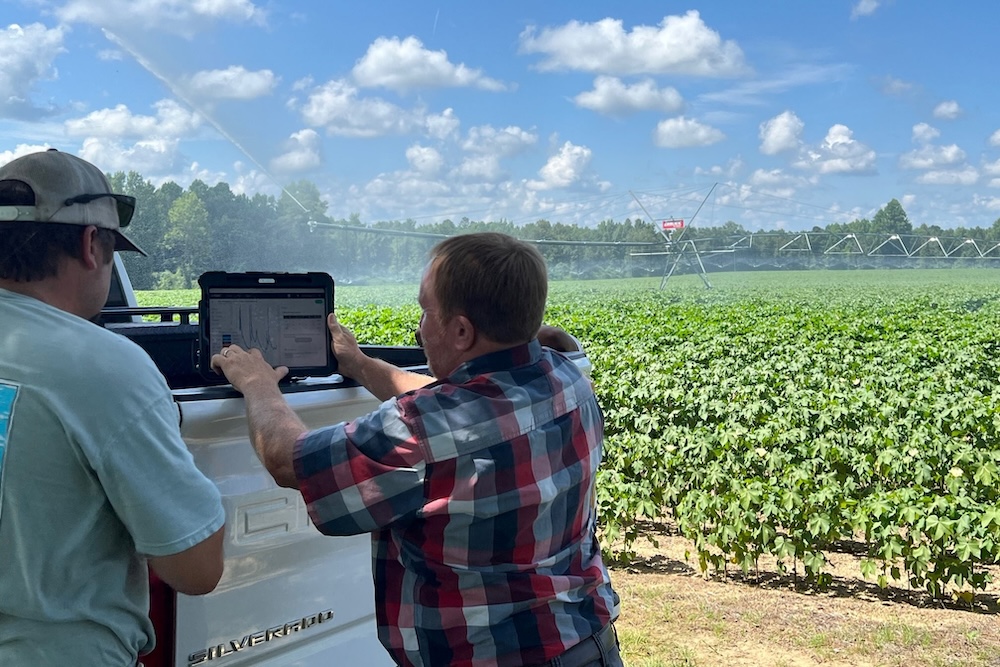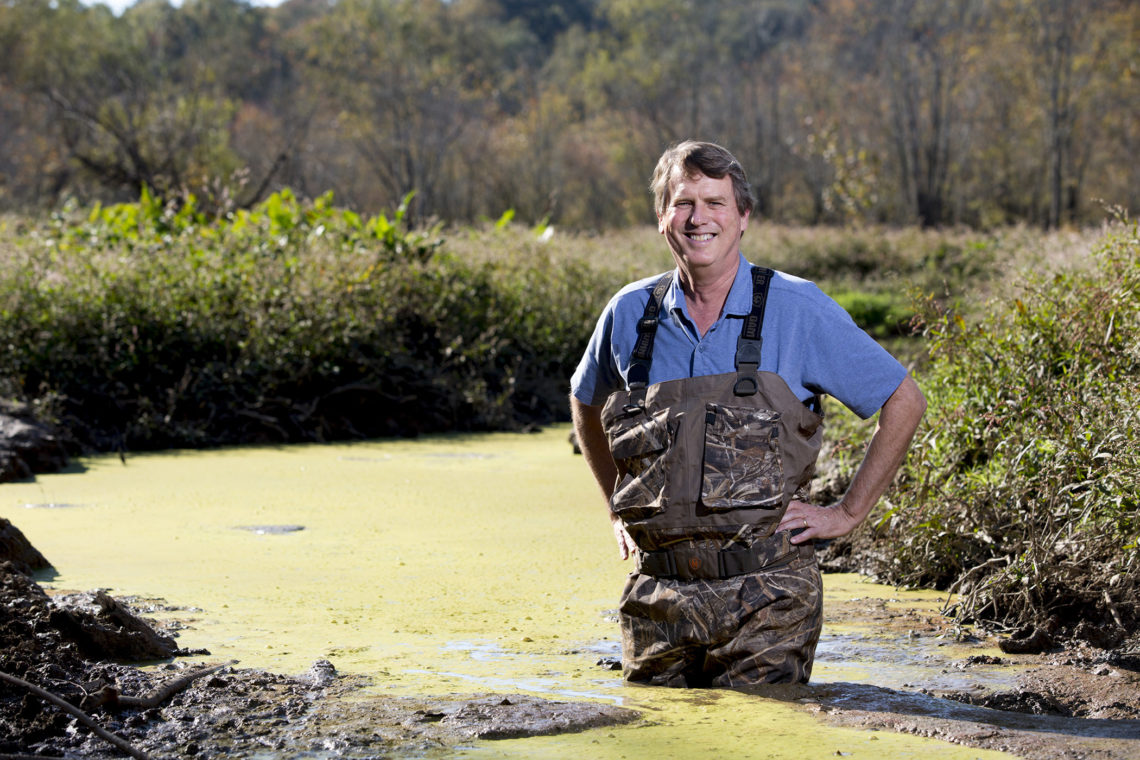CAMILLA, Ga. --This year’s extreme, extended drought added an exclamation point on the decades-long issue of water supply and use in Georgia. Despite recent, light rains, there’s no end in sight.
“Prolonged drought conditions coupled with unprecedented population growth in Georgia have accelerated and exacerbated the need for more water-use research and more far-reaching public education and outreach programs,” said J. Scott Angle, dean and director of the University of Georgia College of Agricultural and Environmental Sciences.
For the week of July 9, state climatologist David Stooksbury said the Flint River “is at or below the 10th percentile,” with Bainbridge, Ga., at a record low for the date. In Albany, Ga., the Flint has less water in it today than it does in 99 years out of 100. These critical figures follow record-setting daily low flow rates in June.
“Over the past decade, we have worked closely with agricultural producers to help monitor how much water Georgia agriculture uses and to find creative solutions to maintaining our vital crop production while decreasing demands on our limited water supply,” Angle said. “However, we feel the time has come that we must renew and increase our efforts to help Georgia address this issue.”
To begin the renewal effort, Angle announced an initiative last week focused on the college’s Stripling Irrigation Research Park. The plan will help further address solutions to water-use problems and begin research that will help set the agenda for future usage decisions.
“In November 2000, C.M. Stripling gave 133 acres of his family’s land just west of Camilla to the college to study irrigation,” Angle said. “We have made tremendous progress in generating a body of irrigation research that is already benefiting the state.”
However, as the struggle to balance water supply and demand has intensified, Angle feels the college can do more to help.
“We are establishing three new positions at the facility to help us deliver more educational programs targeted to growers in the area,” he said. Water resource education is an integral element of the Stripling facility. The new effort, though, will help the center focus more efforts on outreach to the community and local industry.
“Rad Yager, a former Mitchell County Extension agent and superintendent of the Stripling center, has done a tremendous job leading efforts at the center since its inception,” Angle said. “We are now asking him to lead development of new education and outreach programs.”
Yager will work at the Stripling station half-time and assume a new role as a Dougherty County Extension agent half-time, allowing him to work more directly with producers in the Flint River Basin area. Dougherty County is just north of Camilla on the Flint River.
“We will rely on Rad’s strong background in Cooperative Extension programming and his familiarity with local agricultural issues to develop the type of quality programs needed,” said Beverly Sparks, CAES associate dean for extension.
A search is under way for candidates to fill the three new positions at the Stripling facility. They will support research programs that will provide the basis for future education and outreach programs.
“These new positions should put us on track to support numerous water-related research programs that are vital to the future of Georgia agriculture,” said Bob Shulstad, CAES interim associate dean for research.
“Having an ample water supply, a sustainable water conservation-and-use plan and strong research and education programs to help us all make wiser decisions about how we use water in the future are vital to the prosperity of Georgia and the agriculture industry,” Angle said. “We want to make sure that the college is doing all it can to help us maintain and preserve our water resources.”
The rest, however, depends on nature.






